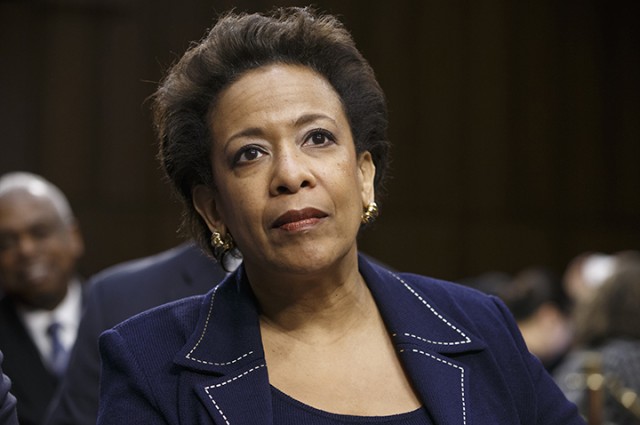
Associated Press
By Kalli Damschen
Staff Writer
The U.S. Senate unanimously passed legislation to provide help for victims of human trafficking on Wednesday, after a long process that aided in protracting the nomination of U.S. Attorney General Loretta Lynch, who was confirmed today.
The Senate passed the Justice for Victims of Trafficking Act with a vote of 99-0 after weeks of partisan debate about abortion funding. The bill creates a new fund to help victims of trafficking and creates new ways to help law enforcement capture traffickers and rescue victims.
Waco is a problem area for human trafficking because of the city’s poverty rates and location on a major interstate. The Waco Police Department provides information about human trafficking in the area that says 10 percent of students in the Waco ISD are homeless and 90 percent live below the poverty line. This puts children at risk and makes it easier for traffickers to exploit them.
“Human trafficking is the exploitation of a person for the purposes of forced labor or commercial sex, regardless of citizenship or nationality,” said Dixie Hairston with Children at Risk, a nonprofit organization that strives to ensure a better future for children.
Hairston is also the project coordinator for Demand Abolition, an initiative of Children at Risk that seeks to reduce demand for illegal commercial sex in Dallas.
Although force, fraud or coercion are required elements of labor trafficking, minors performing any sort of commercial sex act is considered sex trafficking.
Largo, Fla., sophomore Micaela Meurer said she is really glad that the Justice for Victims of Trafficking Act passed because trafficking is the worst human rights violation known to man.
“You’re taking a person and you’re treating them like an object,” she said.
The Justice for Victims of Trafficking Act stalled in the Senate after Democrats objected to language that could expand federal prohibitions on abortion funding. The bill was delayed by this debate, but the parties finally announced a compromise on Tuesday.
Under this compromise, the victims’ support fund was split in two: One part is composed of fines paid by sex traffickers, and these funds cannot go toward health services. The second part can be used for health services and builds on a $5 million fund already granted to Community Health Centers. Since Community Health Centers are already subject to federal abortion funding prohibitions, this compromise resolves Democrats’ concerns about expanding abortion prohibitions.
Hairston said the Justice for Victims of Trafficking Act addresses important areas in the fight against human trafficking but that it’s also necessary to address the demand for commercial sex in society.
There are many ways to get involved in the fight against human trafficking, both by working with organizations that fight trafficking and by reporting trafficking cases.
“If you see something, say something,” Hairston said. “Don’t hesitate to call the Trafficking Resource Center. Send in a tip.”
The National Human Trafficking Resource Center has a hotline available 24/7. You can call 888-373-7888, or text “HELP” or “INFO” to 233733.
The Associated Press contributed to this story.




